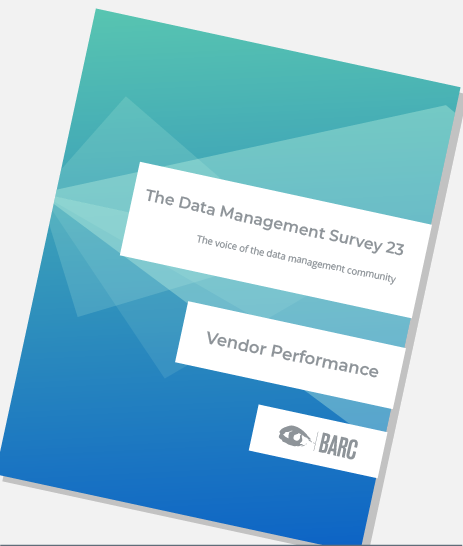Alation Data Catalog
Alation, founded in 2012 in Redwood City, California, is a software provider dedicated to fostering a data culture where users can easily find, understand and trust data. It has a presence in 32 countries and a team of more than 800 employees serving over 500 customers from diverse industries.
Started as a data catalog tool in 2015, Alation today provides a data intelligence platform with integrated, shared services to integrate, curate, enrich and analyze metadata that can be accessed and utilized by various “apps” (e.g., for search and discovery, data governance, analytics, and operations). 35 percent of all Fortune 100 companies use Alation.
The platform is built to support all types of users, providing business and technical context out of an extendable metadata repository to make data understandable for everyone. Alation is mainly used by business users for self-service analytics but also for data governance, data quality and observability. It focuses on collecting, linking and analyzing various kinds of metadata rather than data. An SQL Editor supports data querying.
The solution is adaptable to the needs of the customer system, data and process landscape. Customers can operate and manage it on-premises or in private or public cloud environments. In 2023, the company opened a new data center in Japan to expand how clients can process locally to meet regional data resiliency requirements. Alation is suitable for departmental or enterprise-wide scenarios. It provides a comprehensive set of connectors (100+) to integrate a wide range of metadata sources, including relational, NoSQL, filesystem, BI tools and many others. AI/ML methods can be applied to automate the time-consuming process of integrating and mapping metadata.
For data consumption, Alation provides quick and advanced search functionality for various kinds of metadata. Moreover, advanced functionality to analyze metadata, such as visual end-to-end data line-age (business and technical) with impact reports, provides transparency to users. Alation uses various ML methods to support users (e.g., automating keyword detection to better understand data through ‘auto-understanding’ or analyzing the data). This also includes behavioral metadata, which generates additional valuable information by analyzing log files to derive the frequency of use, thus determining a measure of relevance for the data set. In June 2023, Alation released Connected Sheets for Snowflake, enabling customers to leverage Microsoft Excel and Google Sheets data sources in a governed and trusted manner.
The platform supports stewardship functions for data quality and policy management to build trust in data. The real strength of the platform lies in its collaboration capabilities: it enables users to interact with each other and fosters the production of additional metadata, which provides valuable information about the relevance and usage of data and analytics objects. Overall, Alation relies heavily on the crowd to link and provide various business, technical, operational, governance, behavioral and feedback metadata to enrich data knowledge.
Today, Alation collaborates with a vast partner ecosystem, including over 35 implementation partners, 40+ strategic technology/ecosystem partners and 80+ channel partners. Alation’s partner organization has recently joined the DataBricks Partner Connect community to provide data intelligence for data lakehouses as well as launching a new Data Marketplace in February 2023 to help customers discover external data sets from partners such as Amazon Web Services (AWS) and Snowflake.

User & Use Cases
The most popular use case for Alation customers is data discovery at 76 percent, which is 5 percent less than last year. Data cataloging and metadata management were ranked second by users at 67 percent, while data governance use cases and data stewardship/data quality management were at 64 percent. 48 percent are using Alation to support data warehousing / BI, while data lake processing dropped dramatically from 35 percent to 21 percent in this year’s report.
22 percent of Alation users came from medium-sized companies, a decrease over last year of 7 per-cent. Alation continues to be the choice of large enterprise companies, with a total of 61 percent com-ing from that group. 6 percent of Alation users came from companies with fewer than 100 employees, double last year’s total from that segment.
In companies utilizing data catalog and data intelligence platforms, the mean of 225 users leveraging these solutions is significant and suggests that Alation is used by a broad range of users across com-panies. Alation’s mean average of 373 users per company places it well above average among peers and aligns with its install base of large enterprise firms.
83 percent of Alation customers utilize the solution several times a day or week, illustrating that the solution is a core component of their data management strategy. Only 16 percent of users are on the platform just monthly or less often.
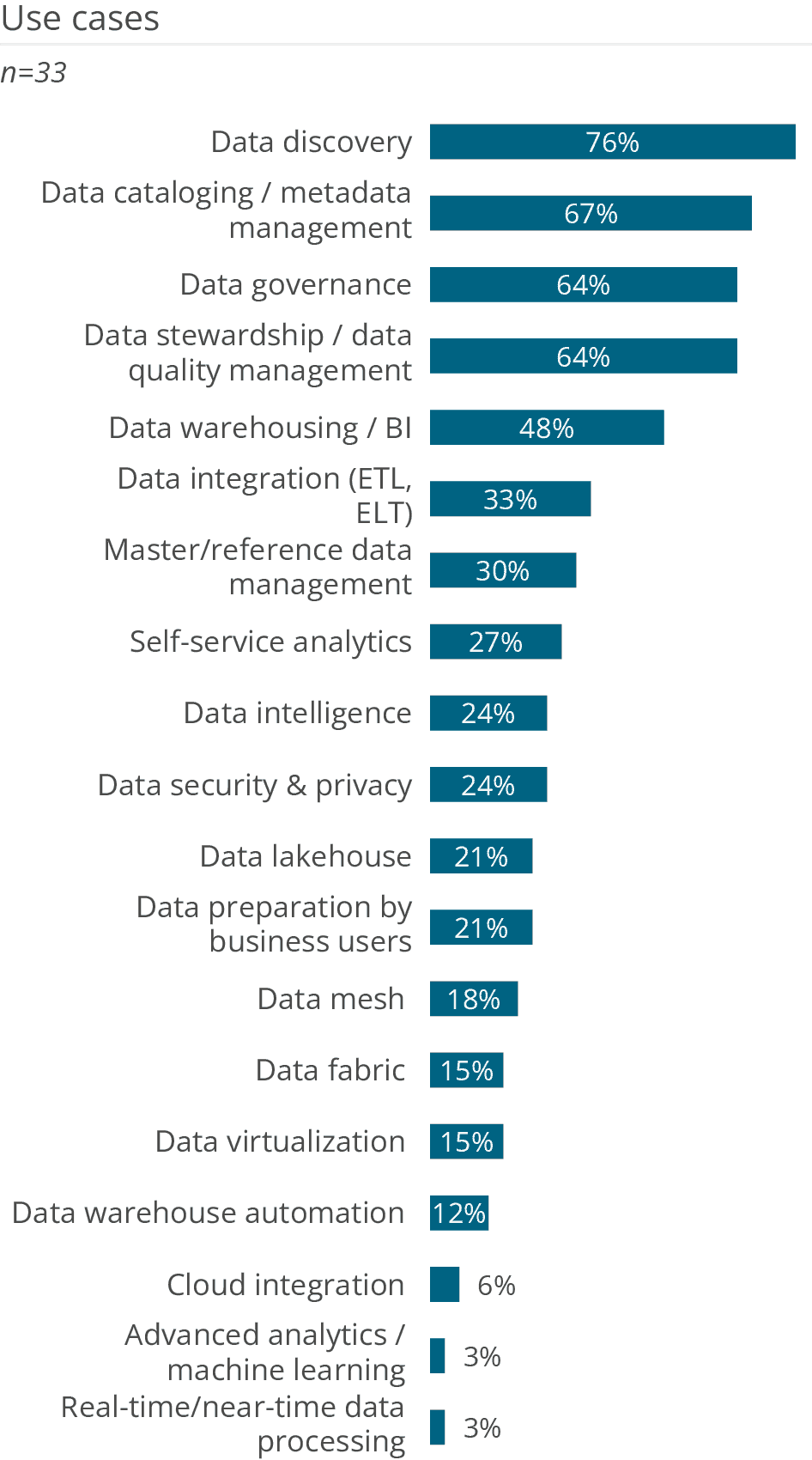

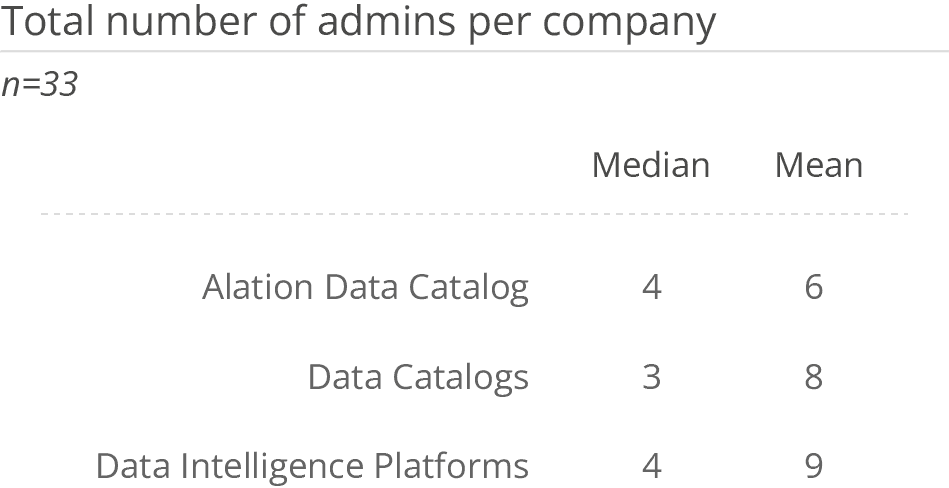
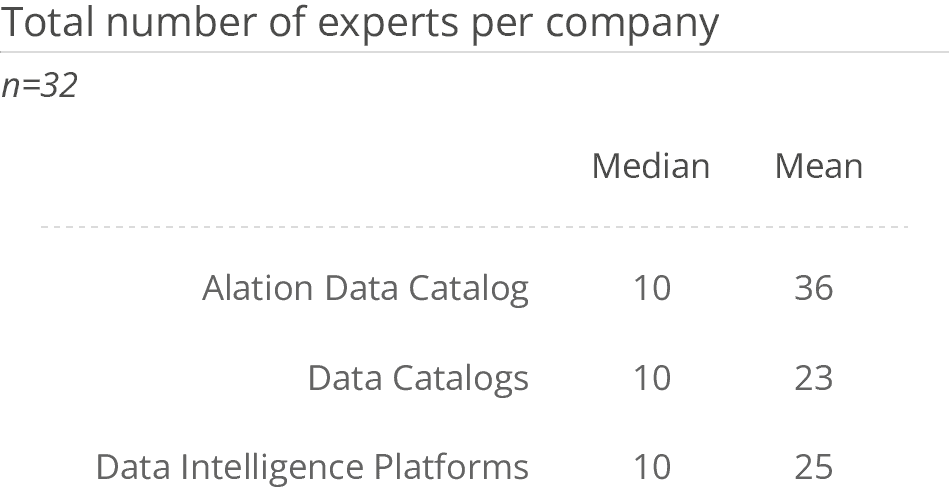
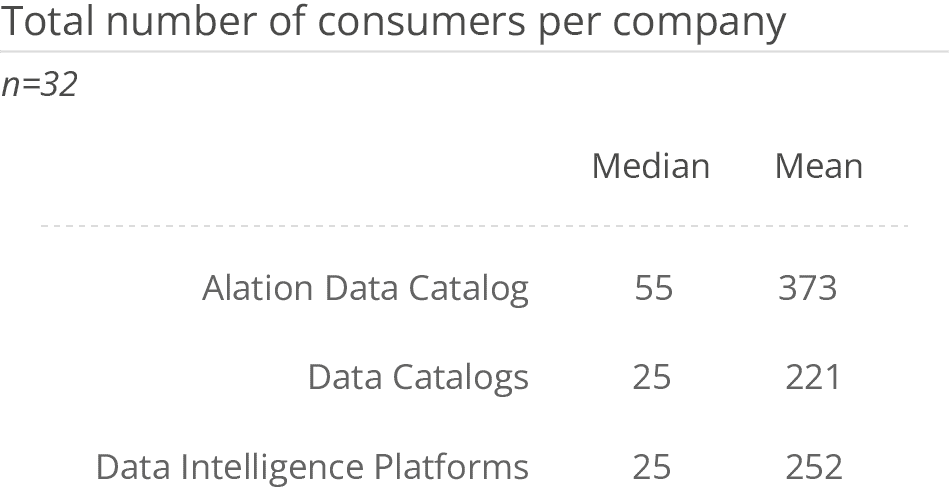
Want to see the whole picture?
BARC’s Vendor Performance Summary contains an overview of The Data Management Survey results based on feedback from Alation Data Catalog users, accompanied by expert analyst commentary.
Contact us to purchase the Vendor Performance Summary- Register for a free sample Vendor Performance Summary download
- If you have any questions, feel free to contact us
